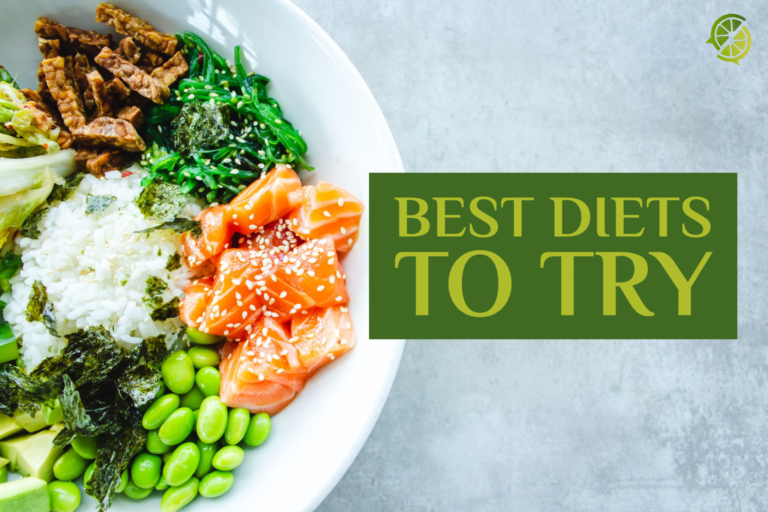
“You are what you eat” – a quote we’re all familiar with and rings so true. You wouldn’t fill a car tank with bad fuel and the same should apply with your body.
We’re all different and some of us suffer from food intolerances and certain lifestyle factors that mean adapting our nutrition.
A healthy diet should be one you can sustain in the long-term – forget crash diets and fads. Here are a few of the best diets to try in 2020 and how they can benefit you for life.
Mediterranean Diet
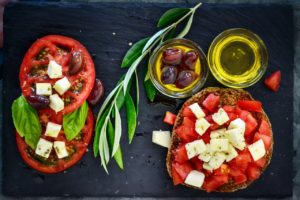
This diet encompasses healthy ways of preparing meat, fish, and vegetables and healthy fats such as olive oil which has been proven to reduce your chances of heart disease.
As well as being beneficial for your physical health, the Mediterranean diet is underpinned by the idea of sitting down and taking the time to enjoy your food, concept countries such as Spain, Italy and France have embraced for generations.
Gluten-free Diet

It can be challenging to know how to swap out gluten-based products, namely bread but thankfully in recent years, there is a myriad of alternatives out there in supermarkets for you to choose from.
You can still enjoy the foods you love, including pasta, cereal, and bread as they are made to include gluten substitutes in their make-up. Eating larger portions of vegetables, cheese, meat, and fish will also help you get the calories you need if you’re looking to give up gluten.
Novak Djokovic publicly spoke out about how a gluten-free diet totally transformed his sporting performance and helped him shed body fat – since doing so, he has gone on to win countless Grand Slam tennis tournaments.
Keto Diet
The word “keto” has been very prevalent in the news over the last couple of years, with many people embracing the effects and benefits.
Ketosis is the process whereby the body is forced into breaking down fat into energy – the keto diet is super low carb, making it an ideal option for weight loss, whilst also providing the right nutrition your body needs.
You can expect to eat foods such as chicken, steamed veg, fiber, dairy, and other high protein foods.
Make sure you do your research when choosing the right type of diet for your lifestyle. If you’re unsure, consult your GP. 👨⚕️
DASH Diet

The diet was developed using research from the National Institutes of Health and promotes lowering the sodium in your diet and eating nutrient-rich foods, that will lower your blood pressure.
As we know, there are a variety of factors that can cause hypertension, including stress, lifestyle, age and genetics and your doctor will be able to tell you whether your systolic blood pressure warrants potentially starting the DASH diet, in an effort to get you to a healthy blood pressure reading.
If you’re looking to improve your blood pressure and thinking the DASH diet might potentially be boring, don’t fret. Though the DASH diet focuses mainly on eating plant-based foods, you can still enjoy dairy products, red meat and sweet foods in moderation.
The DASH diet could be seen more as a way of life that preaches balance and restraint, rather than a “diet” in the traditional sense. It simply promotes eating enough of each food to be healthy, with a focus on keeping your heart healthy, specifically.
The Fertility Diet

Its origins date back to 1991 when a long-running study of 18,000 women began and the results were written into a book published by two co-authors, one of whom Jorge Chavarro, is an associate professor at Harvard T.H Chan School of Public Health.
Chavarro says the diet is healthy for anyone, whether they’re trying to get pregnant or not.
The diet promotes eating healthy fats, whole grains and plant-based foods, which are said to help ovulation, by regulating blood glucose and insulin levels.
One main principle that makes up the fertility diet is the idea of eating foods rich in folic acid, which is an important factor in the prevention of infertility, according to Dr Chavarro.
A more general diet would not require the levels of folic-rich foods included as part of the fertility diet.
Atkins Diet

Atkins is not a new kid on the block, having been originally promoted in 1972 by Robert C Atkins, who wrote a best-seller on the subject. The diet is now popular all over the globe.
Low carb diets are particularly effective for weight loss as a reduction in carbs and increase in protein-rich foods reduces your appetite. The diet is wide-ranging, allowing you to eat foods such as meat, fish, eggs, low carb vegetables and nuts and seeds.
If you’re planning on trying out the Atkins diet alongside an intense exercise routine/whilst preparing for a sporting event, you should consult your doctor beforehand.
Depending on the sport, you may need a diet that’s more carb-orientated, to stop you losing too much weight too quickly.
Dissociated Diet
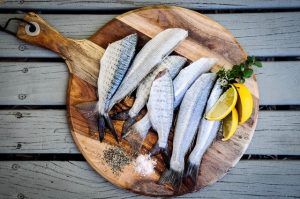
For this reason, it’s probably not a diet you want to be on for a prolonged period, for the simple fact that it might get a little boring!
The main core idea behind the diet is that weight gain is caused by eating alkaline and acidic foods together. This imbalance of digestive and metabolic enzymes is said to be taxing for the body, though the science behind this is ambiguous.
There’s a theory that eating one type of food each meal is less likely to result in weight gain, because our taste buds are turned off by the repetition of eating a single food type for one meal. Whilst this theory sounds like it could hold water, limiting your food intake in this way could result in neglecting vital food types for muscle and tissue growth, impacting your overall health in the long term.
If you’re planning on trying the dissociated diet, make sure it’s a short-term venture, to lose a small amount of weight, before choosing a more varied diet, such as one of those discussed above.
Volumetrics Diet

The diet is the brainchild of Dr Barbara Rolls of Penn State University. According to Rolls, eating low-energy-dense food with high water content (think lots of fruit, veg, low-fat dairy and whole grains), you can eat as much as you like and reduce hunger pangs, fatigue and low morale, which are often symptoms of other low-calorie diets designed for weight loss.
The diet encourages steady weight loss of around 1-2 pounds each week; its incremental nature means it’s possible that people who have struggled on extreme crash diets might be more likely to succeed at reaching their goal weight – “slow and steady wins the race”.
To make a success of a healthy lifestyle and losing weight, you will need to incorporate around 30-60 minutes of exercise each day, as advised by Dr Rolls. Whilst you will need to keep an eye on the calorie content of the foods you eat, it’s not a diet that needs to be followed to the letter and allows for a good degree of flexibility.
Take a look at these examples of meal plans to get you inspired.
Flexitarian Diet
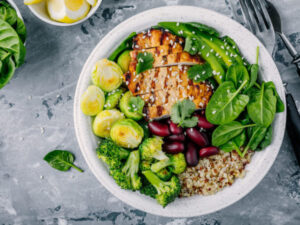
So if you’re looking for a diet that is more of a framework, rather than a stringent eating plan that adheres to a calorie count, this might be a good choice for you. Expect to eat plenty of whole grains and legumes and to be limiting your sugar and sweet food intake.
The flexitarian diet (like pretty much any diet that strives to be good for you) strongly recommends you stay away from processed foods. The main health benefits associated with the flexitarian diet are it can help lower your risk of Type 2 Diabetes, reduce risk of heart disease and it gives you a good degree of structure (but not too much) if you need a little discipline to eat the right foods.
As it involves eating a limited amount of meat, the flexitarian diet is good for the environment: growing planet protein uses 11 times less energy than it takes to make animal protein.
Paleo Diet
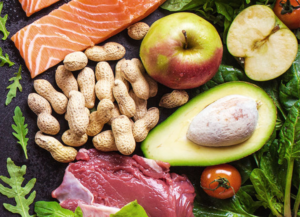
One of the main principals of the paleo diet is to avoid pesticides, chemicals and processed foods, all of which would not have existed during the hunter-gatherer times our ancestors lived through.
Whilst the paleo diet isn’t specifically for losing weight, it can make weight loss easier as the foods it’s made up of don’t contain excessive calories – just make sure you moderate everything you eat like you would with any healthy eating routine.
You might find your energy levels increase after starting the paleo diet, because of the low sugar foods it encompasses. Foods that are low on the glycemic index (AKA sugary foods) are less likely to give you sugar lows – we all know what it feels like when they hit us!
We would recommend that you do your research before doing a food shop with the paleo diet, as there are a lot of hidden preservatives in foods we find in the supermarket.
Make sure you do your research when choosing the right type of diet for your lifestyle. If you’re unsure, consult your GP.



I think Illl try the Atkins diet, trying my best to stay fit and healthy consistently this year no matter the consequences. Also with the diet, I can still have a lot of my favourite foods